Harvey Mudd Welcomes New Faculty for 2023–2024
June 30, 2023
Harvey Mudd College welcomes new teachers/scholars who educate talented scientists, engineers and mathematicians while inspiring them to become passionate problem solvers who understand the impact of their work on society.
Computer Science
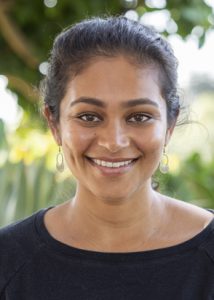
Arthi Padmanabhan joined the Department of Computer Science as a visitor in fall 2022. With degrees in computer science from UCLA’s Henry Samueli School of Engineering and Applied Science (PhD) and Pomona College (B.S.), Padmanabhan is broadly interested in systems and networking. Her research focus is on building systems that enable scalable machine learning on real-time video data. The systems she builds target an improved tradeoff between performance and resource usage in large-scale video analytics systems.
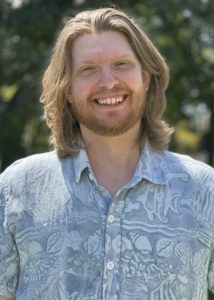
Calden Wloka began working at Harvey Mudd as a visiting assistant professor in 2021. He heads the Lab for Cognition and Attention in Time and Space (Lab for CATS) where he studies visual perception from the perspective of both artificial and biological systems. Wloka earned a master of science degree and PhD at York University as a member of the Tsotsos Lab for Active and Attentive Vision.
Chemistry
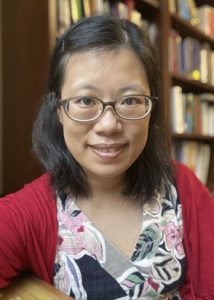
Bilin Zhuang studies the chemistry and physics of how molecules organize themselves in complex liquids with pen-and-paper theories and computer simulations. During graduate school, she helped develop statistical field theories for liquid mixtures under both equilibrium and non-equilibrium conditions as a lab member with engineering professor Zhen-Gang Wang of Caltech, where she earned her PhD in chemistry. She double majored in physics and chemistry at Wellesley College. Zhuang has served as a staff scientist at the Institute of High Performance Computing and as an assistant professor of chemistry at Yale-NUS College in Singapore.
Engineering
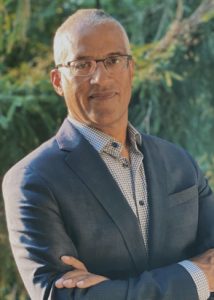
The work of David Nembhard sits at the intersection of human factors, operations management and production. Primarily focused on human learning, Nembhard has made significant contributions to the fields of human factors and management sciences by designing learning systems that account for individual differences in skill levels, learning, forgetting, temporal motivation, cognition, personality and modes of communication. He has received funding from the National Science Foundation, the Department of Defense and various industry partners for his work. Nembhard has mentored and funded 15 PhD students, nine of whom are now academic faculty. He previously served as the director of industrial and manufacturing engineering graduate programs at Penn State University and has been a faculty member at Auburn University, University of Wisconsin-Madison, Oregon State University and the University of Iowa.
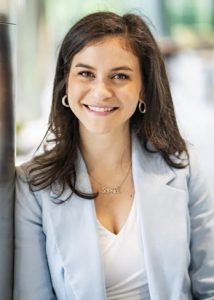
Sophia Plata studies alternative water treatment and the water-energy nexus. She aims to solve critical contaminant and energy challenges across potable and industrial applications to increase water reuse. Plata completed her bachelor of science degree in civil engineering at Widener University and earned her PhD in environmental engineering from USC. An active member of the American Society for Engineering Education, she is committed to advancing underrepresented communities in STEM and has held regional and national leadership positions in the Society of Hispanic Professional Engineers, is an advisor for the Swarthmore chapter. A visiting assistant professor at Swarthmore College, Plata will join the Harvey Mudd faculty in January 2024.
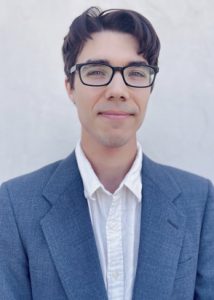
Ethan Ritz ’12, an engineering graduate, earned his PhD in mechanical engineering at Cornell University and did his postdoc at the University of Minnesota in computational materials science. At Cornell, he used computers to predict and understand the thermal properties of materials based on aspects of their crystal structures and atomic-scale chemical bonding environments. At Harvey Mudd, Ritz will continue exploring the mechanical, electronic and thermal properties of materials. He is seeking new materials that will help drive the energy infrastructure needed to combat climate change.
Humanities, Social Sciences, and the Arts
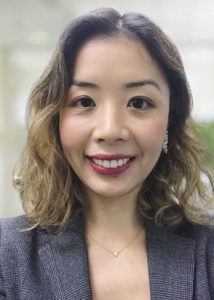
Dede Long is an environmental economist who applies microeconomic theory and econometrics to better understand the economic drivers and environmental consequences of environmental policies. She estimates the value of a clean environment and healthy ecosystems as well as how public and private incentives can be designed to promote the provision of environmental public goods. Long’s recent research focused on the health effects of air pollution, consumer preferences for eco-labeling and the economic benefits of coastal ecosystem restoration. She earned her PhD in applied economics with a specialization in environmental economics from Oregon State University and recently served as an assistant professor at California State University Long Beach.
Hixon Center for Climate and the Environment
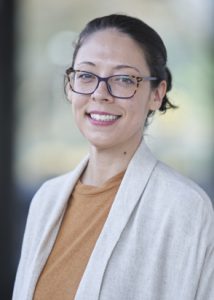
Sarah Kavassalis began working at Harvey Mudd in 2020 as a scholar in the College’s Postdoctoral Program in Interdisciplinary Computation. Her research program centers on creating novel computational tools to answer important questions about air quality and climate. She teaches atmospheric chemistry, physical chemistry and scientific computing. Kavassalis is especially interested in how non-linearities in the earth’s system manifest themselves and how best to capture these interesting complexities with models. She earned a bachelor of science degree in physics and a PhD in chemistry from the University of Toronto.
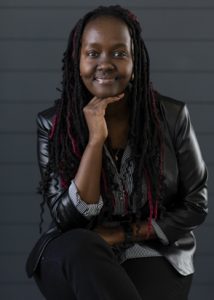
Lynn Kirabo investigates the future of equity in smart public transit systems by centering the lived experiences of persons with disabilities in urban cities. She designs frameworks that policymakers can leverage to nudge their transportation ecosystems forward. Kirabo holds a bachelor’s degree in information technology from Makerere University and two master of science degrees (information technology from Carnegie Mellon University; human-computer interaction from the Human-Computer Interaction Institute [HCII] at Carnegie Mellon University). Her PhD is in human-computer interaction from HCII. She has 10 years of experience working as a front-end developer and software engineer in nonprofits and clean energy. Kirabo is also a Siebel Scholar (2023), a LEAP Alliance Fellow (2018) and a Grace Hopper Scholar (2018).
